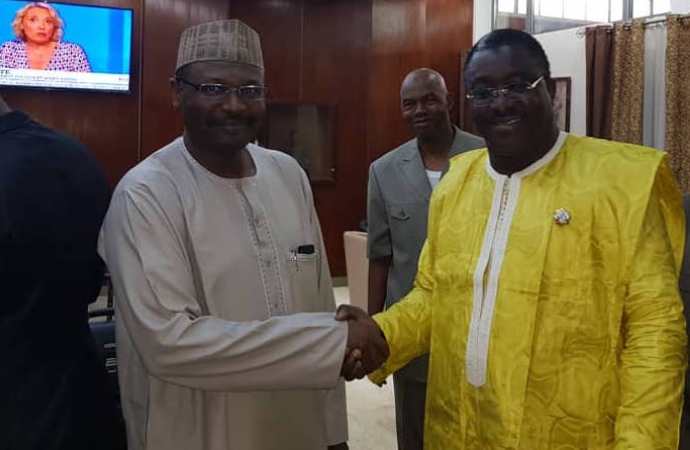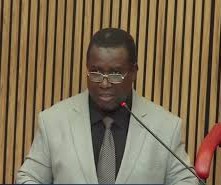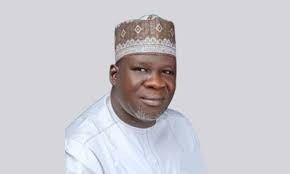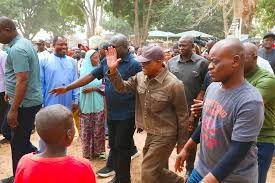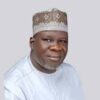An eight-man delegation of the ECOWAS Network of Electoral Commission (ECONEC) has arrived Conakry, the Guinean capital to begin a five-day Post-Election Follow-up Mission (PEFM), as part of measures instituted by the regional body to track and address risk factors that could negatively impact the conduct of peaceful and credible elections in member states. Led
An eight-man delegation of the ECOWAS Network of Electoral Commission (ECONEC) has arrived Conakry, the Guinean capital to begin a five-day Post-Election Follow-up Mission (PEFM), as part of measures instituted by the regional body to track and address risk factors that could negatively impact the conduct of peaceful and credible elections in member states.
Led by Prof. Mahmood Yakubu, president of the ECONEC governing board and Chairman, Independent National Electoral Commission (INEC) of Nigeria, members of the delegation were received by the President of Guinea’s Commission Electorale Nationale Independante, Mr Amadou Salif Kebe and other officials.
The delegation, which includes Prof Emmanuel Tiando, ECONEC first vice-president and chair of Benin Republic’s Electoral Commission, ECONEC Secretariat and INEC officials, will over the next four days meet with Guinea’s political stakeholders including, the Electoral Management Body (EMB), Political Parties, Parliamentary Committees on Electoral Matters, Civil Society Organisations involved in the electoral process, and other institutions mentioned in the ECOWAS Election Observation Mission’s (EOM’s) recommendations.
The Mission is supported by the German International Development Agency, GIZ, Electoral Institute for Sustainable Democracy in Africa (EISA), and INEC.
Guinea held its last Presidential Elections in 2015 which was observed by ECOWAS. It will hold the next crucial presidential election in 2020.
Usually, in the post-election phase, the ECOWAS Commission organises biennial electoral process reviews, bringing the EMBs from across the region together under the auspices of ECONEC, to contribute to peer-learning and the dissemination of best practices.
The main objective of the PEFM is to assess measures being taken by Member State actors to implement the EOM recommendations and identify possible areas of support required to enable full implementation of the recommendations ahead of the next electoral cycle.
From 2014, there has been a shift in the ECOWAS election assessment methodology, with a focus on cycle-wide approach, involving the deployment of Long-Term Election Observation Missions (LTEOMs) to complement and reinforce the Short-Term Election Missions (STEOMs).
The current methodology also entails the deployment of Pre-election Fact-Finding Missions, which enable the collection of first-hand information about the pre-election context.
In addition to the conduct of technical assessment of elections as an integral part of its wider democratic governance and conflict mitigation mandate, the ECOWAS Commission also supports electoral processes in Member States and the promotion of electoral integrity and democratic consolidation in the region.
As part of their remits, PEFMs generate reports identifying challenges and areas of support required to ensure effective implementation of recommendations by EOMs. The reports, to be submitted to the ECOWAS authorities, will serve as a basis for planning and adjusting ECOWAS Electoral Assistance Division’s future electoral support to the specific needs of Member States.
ECONEC was set up in 2008 with the main objective of promoting credible elections through experience sharing and peer-review amongst the EMBs of the 15 ECOWAS member states, and also to facilitate gradual harmonization of electoral administration, based on best practices across the region.
Under the leadership of Prof. Yakubu, who was elected ECONEC President in March 2017, the Network has among other activities, undertaken Needs Assessment and Solidarity Missions to Liberia, Cote d’Ivoire and Sierra Leone.
It has also carried out a study on the cost of elections and co-organized an International Conference in Abuja on the challenges and opportunities in the use of technology in elections.
ECONEC’s advocacy has also resulted in the provision of technical and logistical support to Liberia and Sierra Leone during their recent national elections.

